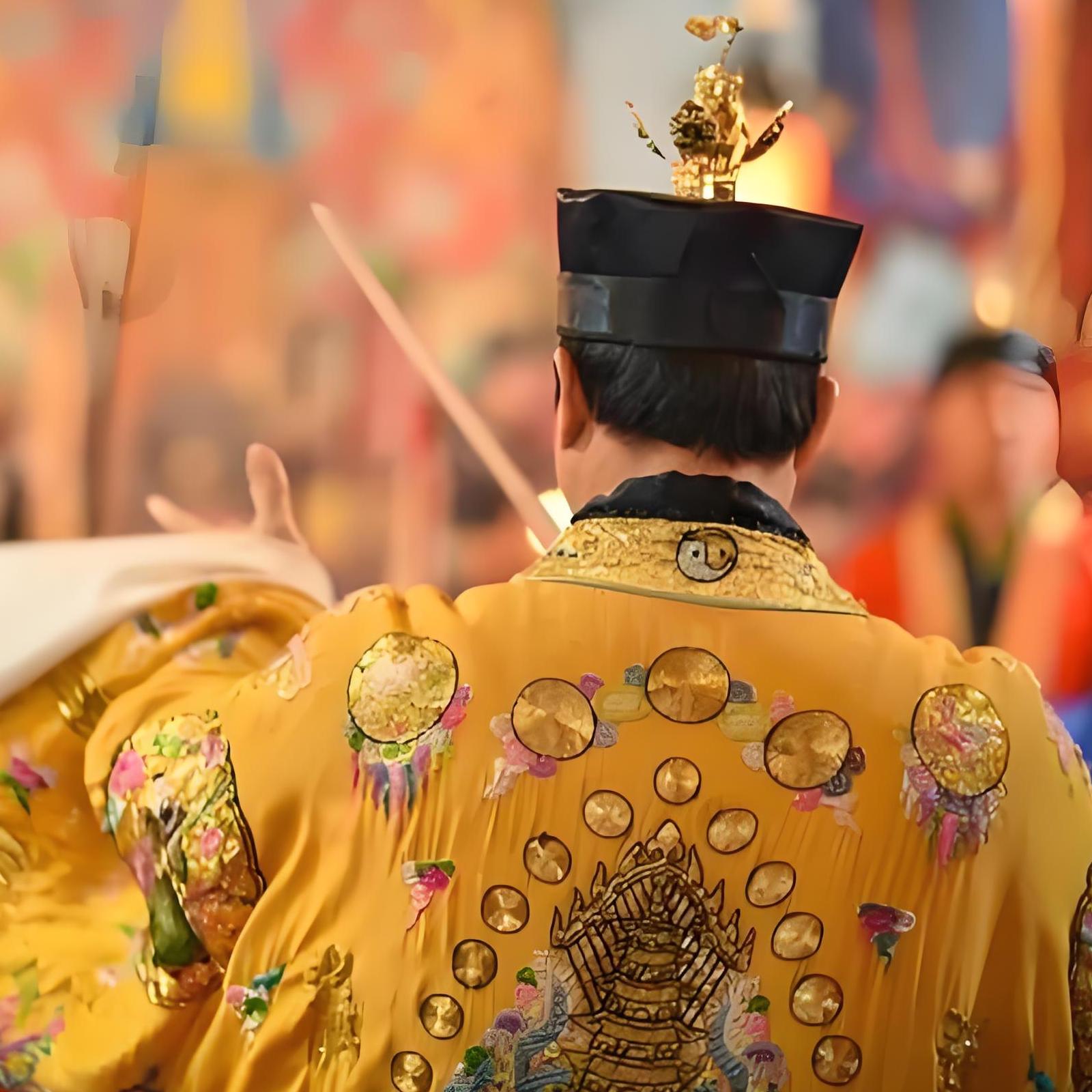### The Story of Feng Shui and Virtue
In ancient times, wealthy families along the coastal regions of Guangdong had a long-standing tradition of employing feng shui masters from Jiangxi. Due to the lack of transportation and the great distance between Jiangxi and the Guangdong coast, these feng shui masters often stayed for years.
There is a story about a prominent figure in Guangdong named Bu Dexing. Despite his wealth, Bu Dexing was known for his unscrupulous ways, engaging in practices like high-interest lending, running brothels and gambling dens, which earned him the nickname “Not Virtuous” behind his back.
Bu Dexing’s father, however, was a different man. Despite being extremely poor in his youth, he was honest, kind, and always willing to help others. One day, he encountered a feng shui master from southern Jiangxi who selected an auspicious burial site for his ancestors, known as “Catfish Going Upstream.” This choice changed the family’s fortunes, allowing them to amass wealth over time. On his deathbed, Bu Dexing’s father repeatedly reminded his children and grandchildren that their family’s success was due to the feng shui master’s help, and that they must always treat feng shui masters from Jiangxi with utmost respect and kindness.
Bu Dexing remembered his father’s advice well. Whenever he met a feng shui master from Jiangxi, he spared no effort in hosting them lavishly. One day, a Jiangxi feng shui master came to stay with Bu Dexing. For ten years, Bu Dexing treated this master as an honored guest, although he never asked him for any feng shui services. The master found this odd and tried to leave several times, but Bu Dexing always persuaded him to stay. When not working for others, the master spent his days reading and playing chess in Bu Dexing’s house.
After ten years, the master, now elderly and feeling unwell, decided to return home to retire. Before leaving, he expressed his gratitude to Bu Dexing for the hospitality and mentioned that he had observed that the “Catfish Going Upstream” site was losing its efficacy. He suggested a new site called “Four Horses Returning to the Trough” for building a new house, which would ensure the family’s continued prosperity. Bu Dexing was delighted and immediately inspected the site, finding it to his liking. The master set an auspicious date for the groundbreaking and instructed Bu Dexing on the construction details: the main hall must have a thatched roof instead of tiles to preserve the feng shui.
At this time, a local feng shui master who was present laughed at the suggestion. When questioned by Bu Dexing, the local master argued that a wealthy man like Bu Dexing should use tiled roofs and stone decorations to match his status. He warned that using thatch would lead to poverty. The Jiangxi master insisted that using tiles and stone would ruin the feng shui and result in disaster. Unable to resolve the dispute, an elder suggested consulting the local City God temple for a divine judgment.
At the temple, they prayed for a sign, asking for a favorable lot to be drawn for the correct advice. Surprisingly, the Jiangxi master drew an unfavorable lot, while the local master drew a favorable one. Bu Dexing, seeing this result, decided to follow the local master’s advice. The Jiangxi master, disappointed, packed his belongings and left the next morning.
Several years later, the Jiangxi master, still in good health, decided to visit Bu Dexing’s home to see the results. Approaching the village at dusk, he saw smoke rising from the manor, a sign of prosperity, and wondered if he had been wrong. Upon entering the estate, however, he found it occupied by strangers. He learned that an outbreak of smallpox had wiped out Bu Dexing’s entire family, and the land had been taken over by migrants.
Deeply saddened by the news and recalling Bu Dexing’s kindness, the master felt disheartened. He went to the City God temple and confronted the deity, questioning the fairness of the divine judgment. Suddenly, a voice responded, explaining that the master had only understood the geomantic principles but not the moral principles. Realizing his oversight, the master vowed that from then on, he would always assess a person’s character before offering his feng shui services, refusing even the most generous offers from those lacking virtue.




